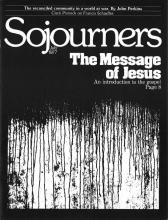A book by Francis Schaeffer with the subtitle “Rise and Decline of Western Thought and Culture,” especially when it is accompanied by a costly film series which is being promoted aggressively this year through seminars and personal appearances, is an evangelical media event. Although there are no new ideas or themes in the book unfamiliar to readers of his earlier titles, it is obvious that Schaeffer, in an effort reminiscent of Kenneth Clark’s Civilisation series, is making a concerted effort to reach the mass audience with the Christian message. It also provides a natural opportunity for his readers to sit back and assess the validity and direction of his thought. All too often Schaeffer’s work receives devoted and uncritical praise when what it needs is a critical response.
Like Escape from Reason, one of the early books, this new work is an outline of the historical development of ideas within Western culture from Roman times to the present. Schaeffer is convinced that humanity’s ultimate religious and moral values spill over into the external world and become worked out in action. He endeavors to show the utter inadequacy of human-centered values to support meaningful existence, and interprets phenomena like the fall of
Only the biblical faith, according to Schaeffer, supplies an adequate framework for the living of life and the viability of cultures. This basic thesis, even though pretentious for so short a work, is certainly crucial, and has been put forth by other Christian intellectuals. There are, however, some weaknesses in Schaeffer’s manner of developing it.
Read the Full Article

